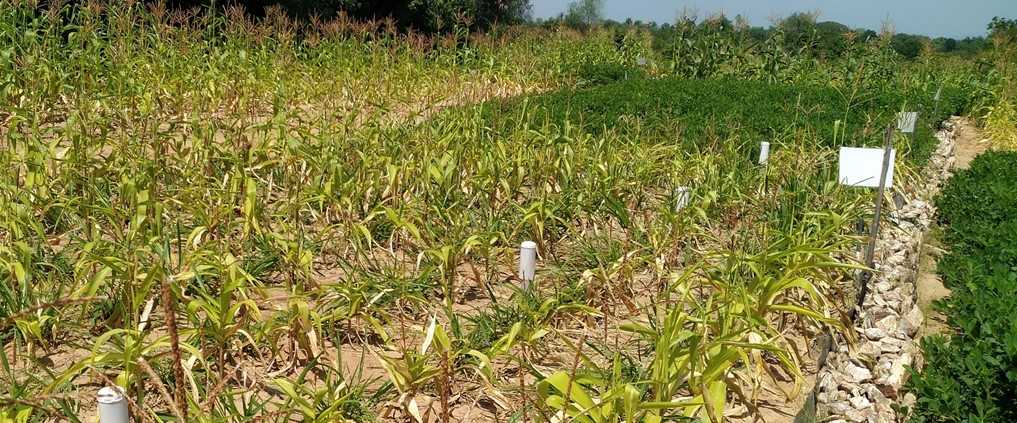REGSOMMICS
REGenerating Soil Organic Matter with Maize InterCropping Systems
Background
Low maize yields in sub-Saharan Africa are often the result of poor soil fertility and pose a challenge to local food security. Although maize monocultures are common in Kenya, it has been shown that such systems often lose soil fertility over time, even when they receive high levels of external organic resources and fertilizer inputs. A potential solution for regenerating soil fertility and increasing soil organic matter is to stimulate root inputs, for example by incorporating root-intensive forages and N-fixing legumes. However, the main processes that facilitate soil organic matter formation, the trade-offs between soil organic matter formation and crop yield, and the role of nutrient limitation in agroecosystem regeneration remain poorly understood in tropical agroecosystems. In this project, we address these issues by studying four long-term trials in Kenya, representing four different pedoclimatic conditions, that were redesigned using regenerative system approaches. Based on the former treatments before the redesign, the trials represent different levels of soil degradation which will be used to study the effectiveness of maize-legume rotation, maize-legume intercropping and maize-forage grass relay in building up soil organic matter and increasing yield. The role of external inputs will be tested by dividing the system treatments into those receiving either farmyard manure or green manure of Tithonia Diversifolia, with or without mineral N fertilizer, and those receiving no external inputs.

Objectives
This project will evaluate in detail the effects of these new treatments on crop yield and biomass, soil C and nutrients, and the economic feasibility of the cropping systems. It will assess whether root inputs or external inputs are more effective in building soil organic matter by studying root biomass and hot water extractable organic C (a proxy for root exudation inputs). Another objective is to gain detailed knowledge of soil organic matter formation processes by studying changes over time in microbial biomass and soil organic matter fractions, i.e. particulate organic matter and mineral-associated organic matter, both inside and outside soil aggregates. A crop growth simulation model and a semi-mechanistic microbial model will be used to study in detail the processes behind crop yield and soil organic matter increases, and to better understand the different pathways of soil organic matter formation and their efficiency.
Outcomes
The main objectives of the project are to elucidate the pathways of efficient tropical soil organic matter formation, determine the yield potential of regenerative practices, quantify the influence of nutrient limitation, and assess the economic feasibility of the practices. This information will then be used to identify cropping systems with the highest sustainability and good yields with the least trade-offs. Ultimately, the project aims to provide the scientific basis for determining which farming systems are most sustainable and feasible for local farmers.

For further information please contact Moritz Laub () or Johan Six ().